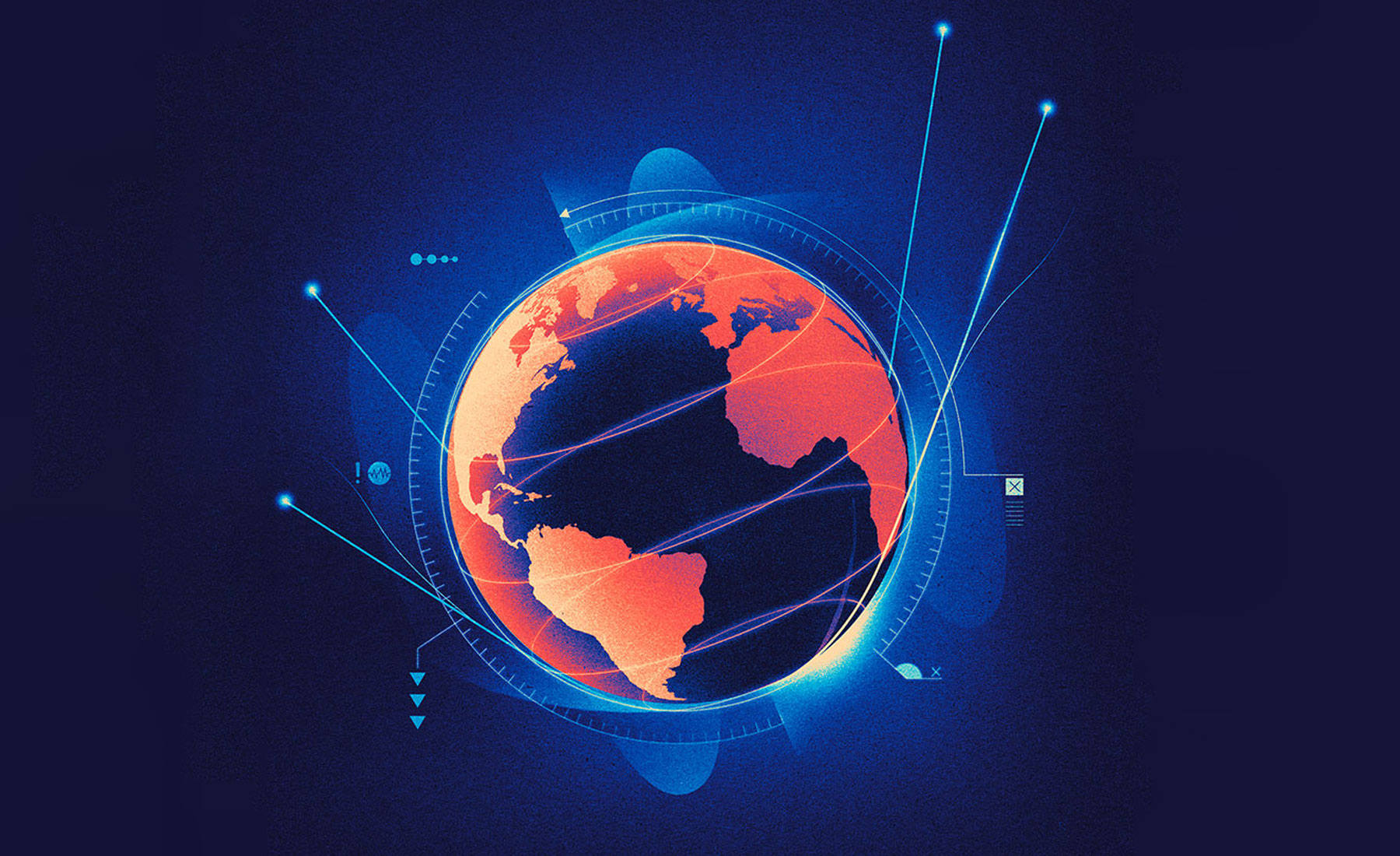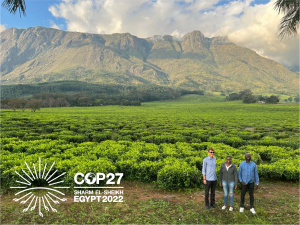The world’s top ten risks are all linked to water
All the ten worst risks facing humanity in the coming decade are closely linked to water. When reading the new Global Risk Report, world leaders should start rethinking how they manage water. They will find some important solutions.
In the yearly Global Risk Report from the World Economic Forum, over 1,200 experts, policymakers and industry leaders are asked to assess major risks they see for the next two and ten years, respectively. This year the Cost-of-Living Crisis is deemed to have the most severe impact in the coming two years, whereas Failure to Mitigate Climate Change is ranked as the worst threat for the ten-year period.
Not surprisingly, the war in Ukraine and rapidly rising inflation have changed risk perceptions compared to a year ago, with Geoeconomic confrontation seen as a major new concern. But over the long term, risks related to climate change and the environment dominate, also because they are so closely linked to other types of risks.
So, what should be done?
More and more research show how improved management of water can help us address most of the risks seen as most worrying in the next decade. Let’s take a closer look at the list.
1. Failure to mitigate climate change.
In 2022, a group of leading scientists headed by SIWI published a landmark report on the role of water in climate mitigation. This was the first review of existing research on the subject and clearly demonstrated that water is crucial both to protect nature’s ability to sequester carbon and to develop sustainable technologies.
2. Failure of climate change adaptation.
The same report highlighted how water-related climate solutions often also helped countries adapt to the unavoidable consequences of climate change. An important conclusion is that we need a new kind of climate policies with water management at the core. The United Nations Adaptation Gap Report for 2022 demonstrated clearly how much there is to gain by making fast investments, not least in improved management of water.
3. Natural disasters and extreme weather events.
2022 was a year of escalating disasters and weather extremes all over the world, in many cases climate related and almost always linked to water. We will continue to see even more frequent and severe droughts, floods, and storms, but the consequences of them can be greatly reduced. Globally there is a big push to ensure that everyone has access to early-warning systems and there is growing awareness that improved water management can help especially smallholder farmers cope with drought.
Learn more about how SIWI helps future-proof food.
4. Biodiversity loss and ecosystem collapse.
Political and economic leaders seem to slowly be waking up to the gigantic risks associated with biodiversity loss and ecosystem collapse. The 2022 UN conference on the topic, COP15 in December, made unexpected progress, not least are more people starting to understand the role of water in protecting and restoring all types of ecosystems. But freshwater ecosystems, including wetlands, are still the most threatened.
Learn more about water at COP15.
5. Large-scale involuntary migration and 6. Natural resources crises.
Climate change and collapsing ecosystems can make life impossible in many places, triggering large-scale involuntary migration. Many smallholder farmers are forced to leave their lands and try to eke out a living in informal settlements surrounding in the country’s capital. But many could likely stay on if more investment was made in climate-proofing small-scale agriculture. For others that is not a possibility, meaning that we need new solutions for cities to be safe and welcoming, not least with better access to safely managed water and sanitation. If not, a vicious cycle is created since untreated sanitation is a great human and environmental risk.
7. Erosion of social cohesion and societal polarization.
Climate change is a real threat multiplier, and can lead to conflict over increasingly scarce resources. Extreme weather events and rapid changes can also lead to insecurity and polarization, paving the way for more authoritarianism. A worrying tendency is also that authoritarian leaders try to weaponize the climate debate. The Global Risk Report finds that all the risks will be aggravated if global leaders don’t find ways to collaborate. Water can offer a way forward since it is transboundary in nature and can only be successfully managed jointly.
8. Widespread cybercrime and cyber insecurity 9. Geoeconomic tensions.
Cybercrime and cyber insecurity are growing risks across the world and basic services such as water are often singled out since they are easy to use for blackmail. But water is also weaponized in conventional wars, in violation of international law. The former UN Special Rapporteur for Water and Sanitation, Catarina de Albuquerque, says that 16 million Ukrainians lack water and sanitation since weaponization of water has become a key element in that war.
10. Large-scale environmental damage incidents.
With growing pressure on the natural world, there is rising risks of disastrous damage, even though it may be unintentional. Water resources are here particularly at risk. There is also growing concern over more complex risks such as cascading effects and tipping points.
To summarize
Water is a key element of all these urgent risks. This illustrates one of the most important points in this year’s Global Risk Report – we are increasingly living in an era of interconnected polycrises. Compared to when the idea of the Global Risk Report was first conceived, it now makes less sense to list risks one by one. Or, rather, when we try to solve the risks identified, we must realize that we can’t address them one at a time.
In 2023 we will need to figure out what to do instead. Like finding solutions through the water that all the risks have in common. To this end, the UN Water Conference will be a decisive moment. We hope that strong commitments will be made in New York, which we can draw upon when we meet again in Stockholm for World Water Week 2023.












